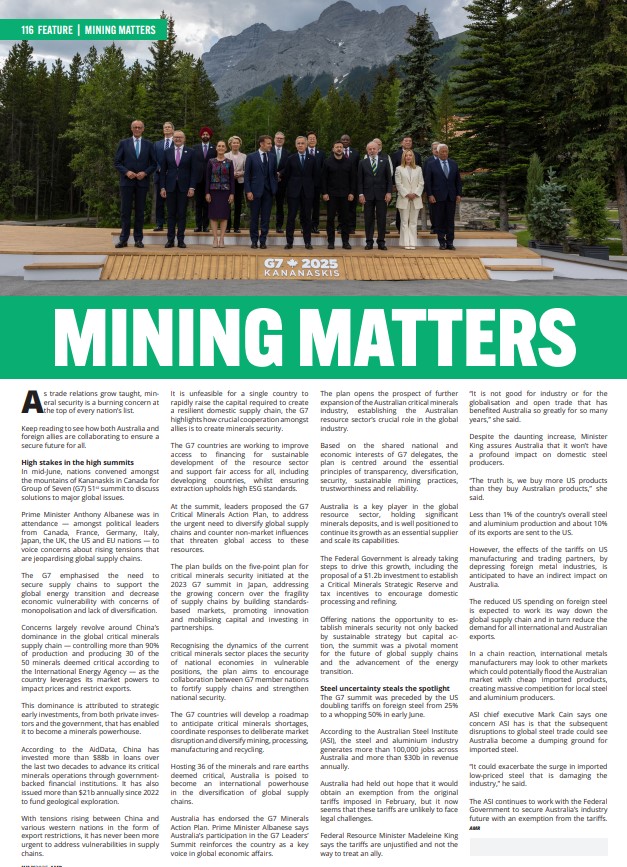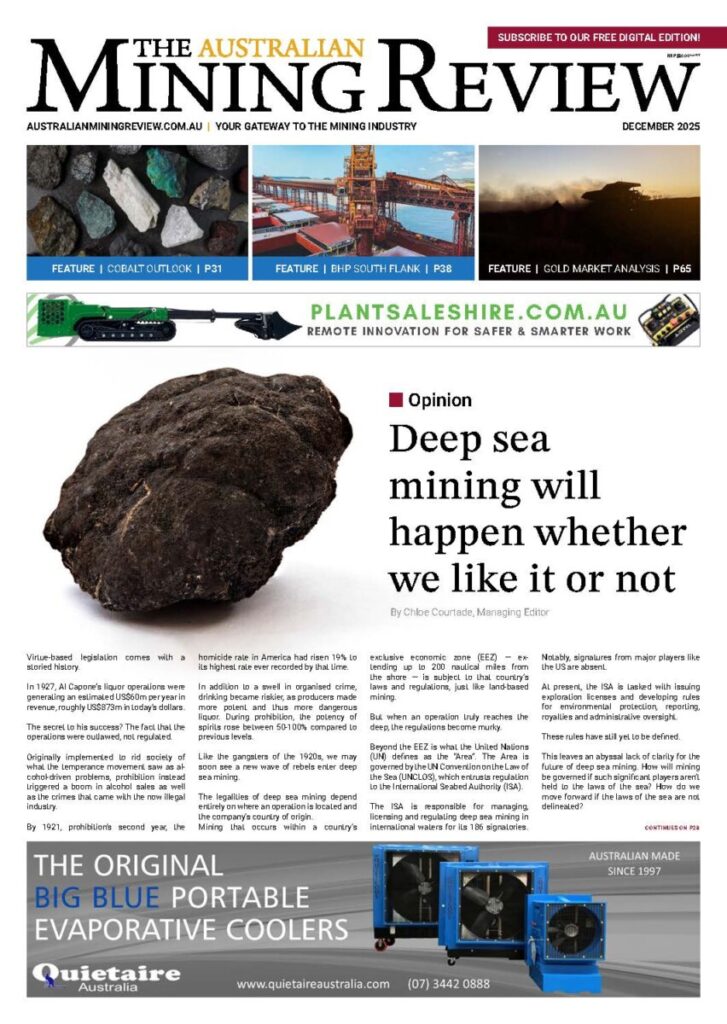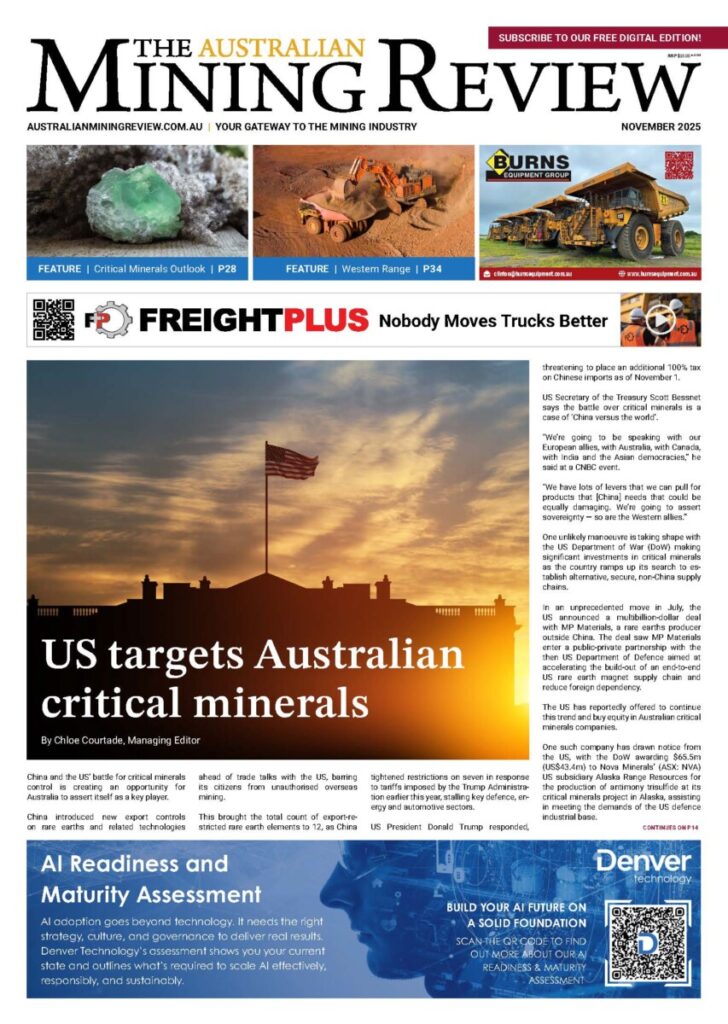Mining matters 
As trade relations grow taught, mineral security is a burning concern at the top of every nation’s list.
Keep reading to see how both Australia and foreign allies are collaborating to ensure a secure future for all.
High stakes in the high summits
In mid-June, nations convened amongst the mountains of Kananaskis in Canada for Group of Seven (G7) 51st summit to discuss solutions to major global issues.
Prime Minister Anthony Albanese was in attendance — amongst political leaders from Canada, France, Germany, Italy, Japan, the UK, the US and EU nations — to voice concerns about rising tensions that are jeopardising global supply chains.
The G7 emphasised the need to secure supply chains to support the global energy transition and decrease economic vulnerability with concerns of monopolisation and lack of diversification.
Concerns largely revolve around China’s dominance in the global critical minerals supply chain — controlling more than 90% of production and producing 30 of the 50 minerals deemed critical according to the International Energy Agency — as the country leverages its market powers to impact prices and restrict exports.
This dominance is attributed to strategic early investments, from both private investors and the government, that has enabled it to become a minerals powerhouse.
According to the AidData, China has invested more than $88b in loans over the last two decades to advance its critical minerals operations through government-backed financial institutions. It has also issued more than $21b annually since 2022 to fund geological exploration.
With tensions rising between China and various western nations in the form of export restrictions, it has never been more urgent to address vulnerabilities in supply chains.
It is unfeasible for a single country to rapidly raise the capital required to create a resilient domestic supply chain, the G7 highlights how crucial cooperation amongst allies is to create minerals security.
The G7 countries are working to improve access to financing for sustainable development of the resource sector and support fair access for all, including developing countries, whilst ensuring extraction upholds high ESG standards.
At the summit, leaders proposed the G7 Critical Minerals Action Plan, to address the urgent need to diversify global supply chains and counter non-market influences that threaten global access to these resources.
The plan builds on the five-point plan for critical minerals security initiated at the 2023 G7 summit in Japan, addressing the growing concern over the fragility of supply chains by building standards-based markets, promoting innovation and mobilising capital and investing in partnerships.
Recognising the dynamics of the current critical minerals sector places the security of national economies in vulnerable positions, the plan aims to encourage collaboration between G7 member nations to fortify supply chains and strengthen national security.
The G7 countries will develop a roadmap to anticipate critical minerals shortages, coordinate responses to deliberate market disruption and diversify mining, processing, manufacturing and recycling.
Hosting 36 of the minerals and rare earths deemed critical, Australia is poised to become an international powerhouse in the diversification of global supply chains.
Australia has endorsed the G7 Minerals Action Plan. Prime Minister Albanese says Australia’s participation in the G7 Leaders’ Summit reinforces the country as a key voice in global economic affairs.
The plan opens the prospect of further expansion of the Australian critical minerals industry, establishing the Australian resource sector’s crucial role in the global industry.
Based on the shared national and economic interests of G7 delegates, the plan is centred around the essential principles of transparency, diversification, security, sustainable mining practices, trustworthiness and reliability.
Australia is a key player in the global resource sector, holding significant minerals deposits, and is well positioned to continue its growth as an essential supplier and scale its capabilities.
The Federal Government is already taking steps to drive this growth, including the proposal of a $1.2b investment to establish a Critical Minerals Strategic Reserve and tax incentives to encourage domestic processing and refining.
Offering nations the opportunity to establish minerals security not only backed by sustainable strategy but capital action, the summit was a pivotal moment for the future of global supply chains and the advancement of the energy transition.
Steel uncertainty steals the spotlight
The G7 summit was preceded by the US doubling tariffs on foreign steel from 25% to a whopping 50% in early June.
According to the Australian Steel Institute (ASI), the steel and aluminium industry generates more than 100,000 jobs across Australia and more than $30b in revenue annually.
Australia had held out hope that it would obtain an exemption from the original tariffs imposed in February, but it now seems that these tariffs are unlikely to face legal challenges.
Federal Resource Minister Madeleine King says the tariffs are unjustified and not the way to treat an ally.
“It?is not good for industry or for the globalisation and open trade that has benefited Australia so greatly for so many years,” she said.
Despite the daunting increase, Minister King assures Australia that it won’t have a profound impact on domestic steel producers.
“The truth is, we buy more US products than they buy Australian products,” she said.
Less than 1% of the country’s overall steel and aluminium production and about 10% of its exports are sent to the US.
However, the effects of the tariffs on US manufacturing and trading partners, by depressing foreign metal industries, is anticipated to have an indirect impact on Australia.
The reduced US spending on foreign steel is expected to work its way down the global supply chain and in turn reduce the demand for all international and Australian exports.
In a chain reaction, international metals manufacturers may look to other markets which could potentially flood the Australian market with cheap imported products, creating massive competition for local steel and aluminium producers.
ASI chief executive Mark Cain says one concern ASI has is that the subsequent disruptions to global steel trade could see Australia become a dumping ground for imported steel.
“It could exacerbate the surge in imported low-priced steel that is damaging the industry,” he said.
The ASI continues to work with the Federal Government to secure Australia’s industry future with an exemption from the tariffs.

























